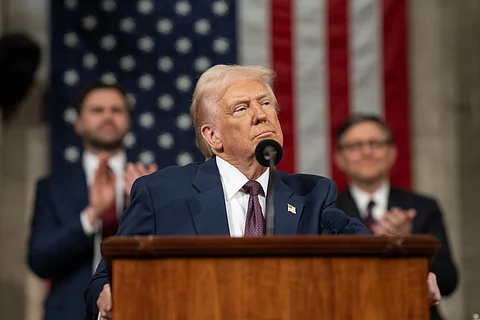

President Donald Trump has announced that a 25% tariff will be applied to all imports from nations purchasing oil or gas from Venezuela. This measure, effective April 2, also introduces additional tariffs specifically for Venezuela, which Trump characterized as having a “very hostile” stance toward the United States.
In a post on Truth Social, Trump stated that countries trading with Venezuela will face tariffs on all their U.S. imports. He cited concerns over Venezuela's connection to gang activity, particularly the Tren de Aragua gang, which he claims has sent numerous criminals to the United States. This "secondary" tariff reflects the administration's ongoing efforts to address security threats tied to Venezuelan exports.
This announcement indicates a potential intensification of trade tensions, especially with China, Venezuela's largest oil buyer. The Trump administration previously enacted a 20% tariff on Chinese imports as part of a strategy to combat the illegal fentanyl trade. Trump referred to April 2 as “LIBERATION DAY,” suggesting a broader initiative to align U.S. tariffs with those imposed by other countries, including key trading partners like Mexico and Canada.
Despite a rise in the U.S. stock market on Monday, analysts express concerns that escalating trade conflicts could hinder economic growth and increase inflation. The S&P 500 index has faced challenges this year amid these uncertainties.
A 2024 report from the U.S. Energy Information Administration revealed that China accounted for 68% of Venezuela's oil exports in 2023, with other countries like Spain, Russia, Singapore, and Vietnam also involved. In January, the U.S. imported 8.6 million barrels from Venezuela.